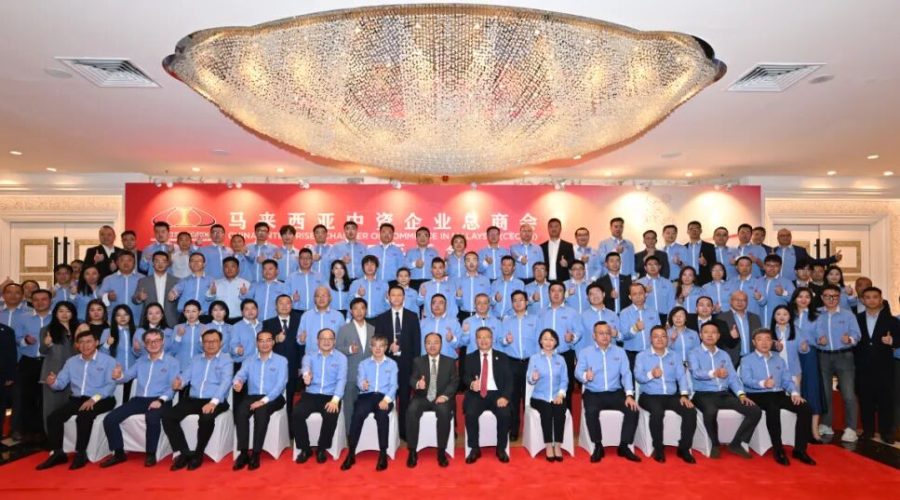Following the amendments to the Employment Act 1955 in 2022, the Act applies to all employees regardless of their salary level. However, the following provisions of the Employment Act do not apply to employees earning more than RM4,000 per month:
Section 60(3): Overtime pay rate for employees working on rest days;
Section 60A(3): Overtime rates outside working hours;
Section 60C(2A): Allowance for shift-based work
Section 60D(3): Overtime on public holidays
Section 60D(4): Calculation of wages for half-working day public holidays as a full working day; and
Section 60J: Termination, dismissals, and retirement benefits.
Under the Employment (Amendment) Act 2022, all employees, regardless of salary, must have a contract that clearly outlines the terms of employment. While contracts may be in written or oral form, it is strongly recommended that they be in writing to minimise disputes. The contract should include the following key elements:
- Job Position and Responsibilities: Clearly specifying the employee’s designated role and corresponding duties, which help define the scope of work and performance assessment criteria.
- Working Hours: The contract must specify standard working hours and any possible overtime arrangements while adhering to the statutory weekly work hour limits set by the amended Act.
- Salary Details: Clearly outline the salary structure, payment period, and calculation method, including the specific requirements under the amended law regarding wage calculations in certain months, ensuring both parties’ rights.
- Leave Entitlements: Include provisions on annual leave, sick leave, maternity leave, and paternity leave, in line with the latest amendments that extend paid maternity leave to 98 days.
- Termination Clauses: Clearly stipulate the procedures for termination, resignation, and dismissal, outlining both employer and employee rights and obligations to prevent disputes arising from unilateral termination.
This requirement ensures that both employers and employees understand and agree to their respective rights and obligations at the outset of the employment relationship, thereby providing legal protection, fostering transparency, stability, and fairness in the workplace, and promoting a healthy labour market.
Non-Malaysians require a work permit to be employed in Malaysia. Given the Malaysian government’s objective to train local talent for various employment levels, certain industries, such as manufacturing, restrict long-term employment of foreigners to specific pre-designated and approved critical positions. Generally, a foreigner is only permitted to hold a position if the paid-up capital of a foreign-owned company operating in Malaysia is at least RM500,000.00. Companies engaging in unregulated services or wholesale and retail trade in Malaysia must have a minimum paid-up capital of RM1 million. Foreigners establishing a branch office in Malaysia are typically granted only limited employment positions, unless compelling reasons are provided.
Certain sectors (e.g., manufacturing, IT, financial institutions, insurance companies, and education companies) require foreign employment applications to be submitted to designated government agencies before being forwarded to the Immigration Department for approval. Senior executive positions requiring professional qualifications and expertise may be filled by foreigners, but with the condition that Malaysians must ultimately be trained to assume such roles. In early 2011, Malaysia introduced the Resident Pass (RP-T), a 10-year pass that is not employer-specific but targets highly skilled foreign professionals working in specific sectors.
Employers must obtain prior approval from the Director-General of Labour before hiring foreign employees and submit an application in the prescribed manner. Failure to do so constitutes an offence, and upon conviction, the employer may face a fine not exceeding RM100,000 or imprisonment of up to five years, or both. Upon receiving approval, the employer must submit the foreign employee’s details to the Director-General of Labour within 14 days of employment commencement.
Effective 1 February 2025, Malaysia’s minimum wage has been revised to RM1,700 per month, applicable to most businesses. For employers with five or more employees and those in professional industries, this new minimum wage takes effect immediately. However, for businesses with fewer than five employees, the implementation is deferred until 1 August 2025, allowing time for necessary adjustments. Employers must ensure compliance with the new wage structure and adjust their payroll systems accordingly.
Under the latest employment policies, standard working hours shall not exceed 45 hours per week, with a daily cap of 8 hours.
- Overtime pay (not applicable to employees earning more than RM4,000 per month)
If an employee works beyond normal working hours, they are entitled to overtime pay, according to the following pay rate:
- First two hours: 1.5 times the normal hourly wage
- Beyond two hours: 2 times the normal hourly wage.
- Rest days and public holidays
Employees are entitled to at least one rest day per week, typically Sunday, but this may be substituted by agreement with the employer. Employees are entitled to 11 public holidays per year, and those working on these holidays are entitled to double pay.
- Leave entitlements
Annual leave: Employees are entitled to paid annual leave as follows:
| Years of service (years) | Annual Leave (Days) |
| 1-2 | 8 |
| 2-5 | 12 |
| > 5 | 16 |
Sick leave: Employees are entitled to paid sick leave based on years of service:
| Years of service (years) | Sick leave (days) |
| < 2 | 14 |
| 2-5 | 18 |
| > 5 | 22 |
Maternity leave: All female employees are entitled to 98 days of paid maternity leave
Paternity leave: All male employees are entitled to 7 days of paid paternity leave
- Flexible work arrangements
An employee may apply to the employer for flexible working arrangements to change the working hours, number of days worked or place of work in relation to his employment. Upon application, the employer shall approve or reject the application within 60 days from the date of receipt of the application. Reasons for the refusal of the applications shall be provided.
In Malaysia, all dismissals must be based on “just cause or excuse” and must adhere to strict procedural requirements. Under the Employment Act 1955 and Industrial Relations Act 1967, employers must ensure that dismissal is lawful and procedurally fair.
The Employment (Amendment) Act 2022 strengthens employee protection, particularly for pregnant and postnatal employees, prohibiting termination unless there is serious misconduct, fundamental breach of contract, or substantial business restructuring. This provision effectively prevents wrongful dismissal on the basis of sex or pregnancy, and guarantees the stable employment rights and interests of pregnant employees.
In the event of a dispute arising from dismissal, the employee may file a complaint with the Department of Labour or seek relief through the Industrial Court. If the Industrial Court rules in favour of the employee, compensation awarded is often substantial, although legal costs are generally not recoverable. Meanwhile, the Employment (Amendment) Act 2022 provides that if an employer is convicted of a breach of employment regulations, the Courts may also order employers to repay outstanding wages and enforce compliance through asset seizure or auctioning to protect employee rights.
These provisions not only improve the level of employee protection, but also encourage employers to be more cautious in handling dismissal and termination of employment contracts, so as to avoid high compensation and legal risks arising from improper procedures
Under the Employees Provident Fund Act 1991, all employees must contribute to the Employees Provident Fund (EPF) according to a prescribed proportion. In recent years, with the continuous improvement of the social security system, Malaysia’s social security system (SOCSO) and Employment Insurance Scheme (EIS) has increased the wage ceiling from RM5,000 to RM6,000, offering greater protection in cases of unemployment or injury. Overall, the employer’s total contribution to payroll costs typically accounts for about 18.95% to 22.45% of an employee’s salary, with the main components including: –
Employee Provident Fund (EPF): Employees contribute up to 13%, depending on salary and age.
Social Security Organization (SOCSO): Contribution rate ranges from 1% to 2%.
Employment Insurance Scheme (EIS): Approximately 0.2% of an employee’s salary.
There is no mandatory retirement age in the private sector, and retirement is usually determined by contract or company policy. While 55 is often considered a standard retirement age, the Minimum Retirement Age Act 2012 sets a statutory minimum retirement age of 60, meaning employees cannot be forced to retire before 60.
These provisions collectively form a comprehensive pension and social security framework, safeguarding employees’ rights at various career and life stages.
As the Personal Data Protection Act 2010 (the “Personal Data Protection Act”) came into effect on 15 November 2013, where the whistleblower and the alleged wrongdoer are both employees, the employer is required to Find the right balance.






